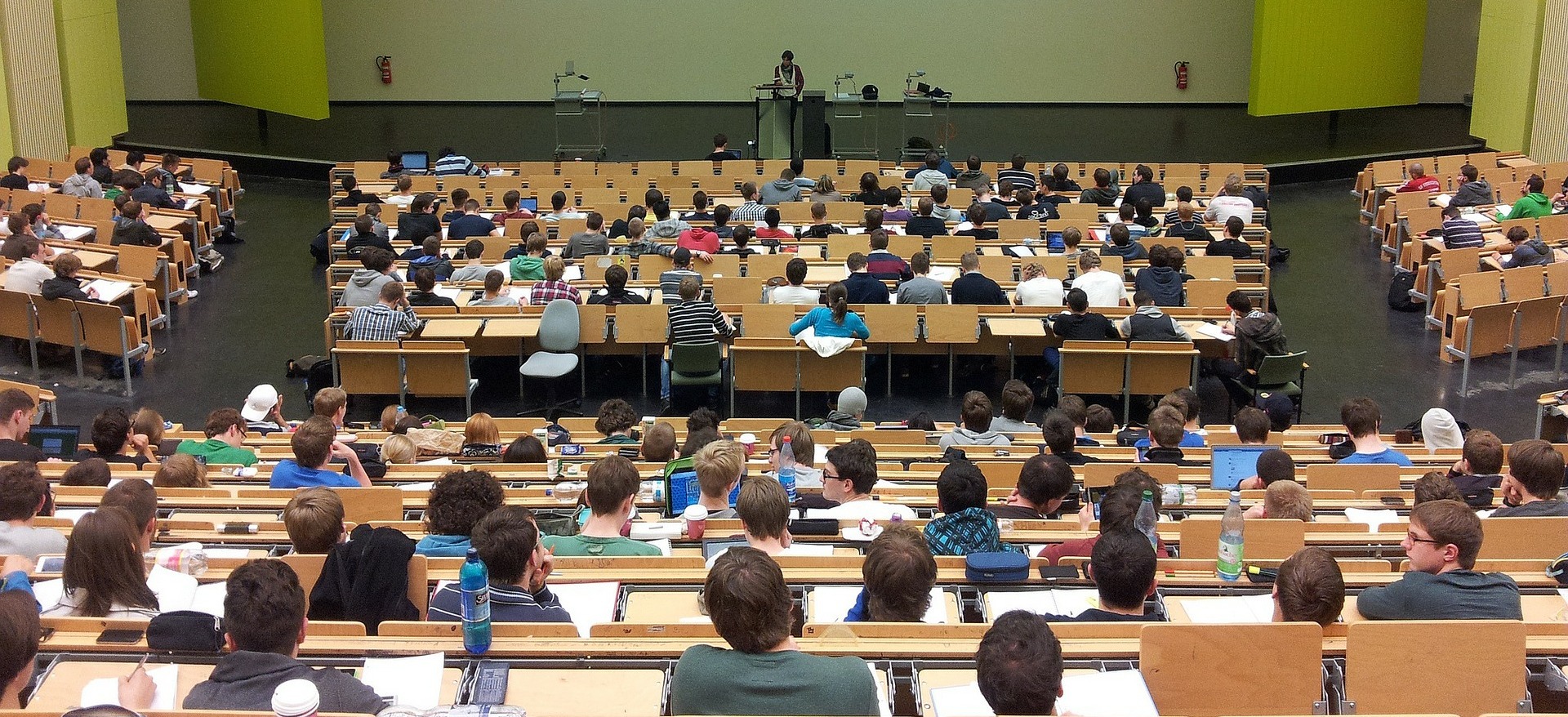
K-12 Schools
In K-12 public and private schools, geoscientists often teach (but are not limited to) math or general science classes. K-12 educators play an important role in engaging students with Earth science concepts early in their education, inspiring the next generation of geoscientists. Classroom teacher positions are typically filled by state-licensed teachers who have completed coursework in education and student teaching experiences. Unlicensed teachers can work as paraprofessionals, substitute teachers, and at some private or charter schools.
Meet a middle school science teacher.
Read about teaching high school science after a PhD.
Explore the NAGT Career Hub.
Employers:
You can find employers by searching for the web pages of your local school districts. School directories can also be found on your state's Department of Education website - find your state agency here.

Universities & Colleges
When you think of jobs in higher education, you probably think first of positions in academia (like a tenure-track professorship). However, there are many other jobs in the "non-academic" space at universities and colleges (both two- and four-year). Geoscience graduates can be hired to work in academic advising, student affairs, offices of diversity and inclusion, and centers for teaching support. There are also opportunities to teach in learning centers (for example, a GIS, writing, or math center) and laboratory-based courses that require classroom support from lab coordinators or technicians.
Example employers:
Florida International University GIS Center
UCSC Center for Innovations in Teaching and Learning
Columbia Writing Center
Diversity and Inclusion Offices
Berkeley Student Learning Center
UNH Office of National Fellowships

Outreach Programs
Many universities, research institutes, and museums have outreach programs focused on educating students and the public about Earth science concepts and issues. Geoscientists can be employed to develop outreach programs, organize outreach events and initiatives, and connect the institution with the public.
Read about transitioning from research to outreach.
Meet an Education & Diversity Manager.
Read about working as a museum scientist and educator.
Meet a director of museum education and outreach.
Hear about working in a small natural history museum.
Example employers:
Vanderbilt Collaborative for STEM Education & Outreach
Stanford EARTH K-12 Outreach
Carleton University Department of Earth Sciences
Smithsonian
Paleontological Research Institution
The Field Museum of Natural History
Denver Museum of Nature and Science

Professional Societies
Sharing geoscience with the public and supporting K-12 STEM education are often key missions of professional societies. There are many organizations supporting various STEM fields and social identities, most with an office of education and outreach where geoscientists can be employed to coordinate outreach initiatives, develop resources for teachers, provide professional development, and more. In addition to the example employers below, you can find a list of geoscience societies here.
Meet a Manager of Education & Public Outreach at AGU.
Meet an education specialist supporting Native students.
Read about educational tools and strategies used by IRIS.
Example employers:
American Geosciences Institute
Incorporated Research Institutions for Seismology
National Indian Education Association
Geological Society of America
American Geophysical Union
SACNAS